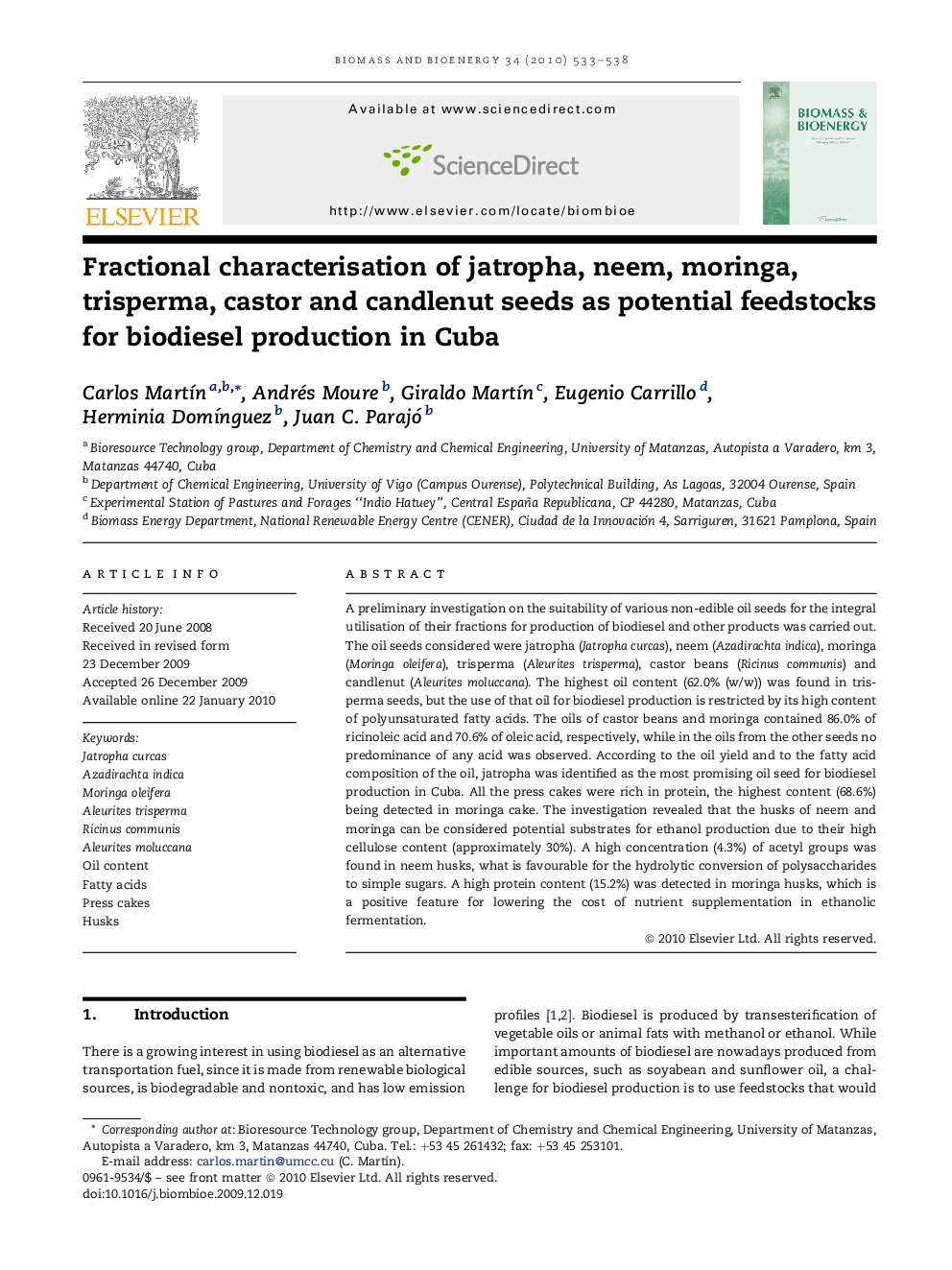| Article ID | Journal | Published Year | Pages | File Type |
|---|---|---|---|---|
| 678498 | Biomass and Bioenergy | 2010 | 6 Pages |
A preliminary investigation on the suitability of various non-edible oil seeds for the integral utilisation of their fractions for production of biodiesel and other products was carried out. The oil seeds considered were jatropha (Jatropha curcas), neem (Azadirachta indica), moringa (Moringa oleifera), trisperma (Aleurites trisperma), castor beans (Ricinus communis) and candlenut (Aleurites moluccana). The highest oil content (62.0% (w/w)) was found in trisperma seeds, but the use of that oil for biodiesel production is restricted by its high content of polyunsaturated fatty acids. The oils of castor beans and moringa contained 86.0% of ricinoleic acid and 70.6% of oleic acid, respectively, while in the oils from the other seeds no predominance of any acid was observed. According to the oil yield and to the fatty acid composition of the oil, jatropha was identified as the most promising oil seed for biodiesel production in Cuba. All the press cakes were rich in protein, the highest content (68.6%) being detected in moringa cake. The investigation revealed that the husks of neem and moringa can be considered potential substrates for ethanol production due to their high cellulose content (approximately 30%). A high concentration (4.3%) of acetyl groups was found in neem husks, what is favourable for the hydrolytic conversion of polysaccharides to simple sugars. A high protein content (15.2%) was detected in moringa husks, which is a positive feature for lowering the cost of nutrient supplementation in ethanolic fermentation.
